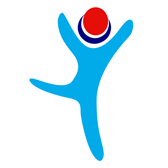Course Description

Stress is neither extrinsic nor intrinsic; it stems from our reaction towards conflict. To effectively deal with such life-stressors, certain stress management techniques like relaxation, time management, exercise, and mindfulness can be equipped to better the quality of one’s life.
Emotional intelligence (EI) is a person’s capability to look within themselves and understand what they’re seeing, which in turn helps in perceiving others. To be emotionally intelligent, one has to practice self-awareness, self-regulation, empathy, motivation, and social skills.
NLP refines non-verbal and verbal communication skills by mirroring body language and building rapport to subtly influence customer decisions. In contrast, sales psychology explores the customers’ psyche and their emotional needs, allowing sales professionals to leverage these insights for improved sales success.
Quality courses that are more accessible
– Stress Management and Emotional Intelligence: Techniques like relaxation, mindfulness, and self-regulation improve stress management and emotional intelligence by enhancing self-awareness and empathy.
– NLP and Sales Psychology: NLP enhances communication through body language and rapport-building, while sales psychology leverages emotional insights to better understand customers.
– Leadership and Time Management: Effective leaders utilize conflict resolution, decision-making, and time management skills to inspire and guide teams towards success.
– Mind Power and Mental Skills Training: Techniques like visualization and affirmations in mind power training, along with mental skills training, improve performance in life and sports.
– Parenting and Child Development: Essential parenting skills, combined with insights from child psychology, foster strong parent-child relationships and support cognitive and behavioral development.
Personality development helps individuals
Personality development helps individuals build and strengthen their self-concept, self-image, and identity.
A leader’s role is to inspire and direct their teammates toward success, making use of essential skills like conflict resolution, decision making, people management, and effective communication—each of which can be cultivated and polished.
Time management is about optimizing one’s efficiency to work smarter, not harder, through steps like preplanning tasks, prioritizing, delegating, setting time limits, and minimizing stress and redundancies.
Mind power training enables individuals to delve deeper into their conscious and subconscious minds through techniques like visualization, affirmations, and thought management, as our focus shapes what we draw into our lives.
A parent’s job is to provide age-appropriate care tailored to a child’s developmental stage. These essential parenting skills can be learned by utilising key components—emotional bonding, respect, empathetic guidance, and constructive discipline—to foster good parent-child relationships.
Innovation involves coming up with new ideas and opportunities, while entrepreneurship emphasises on taking calculated risks to capitalise on those said opportunities.
Child psychology examines the cognitive and behavioural development of children from the prenatal stage to the cusp of adolescence, often focusing on how these processes differ from those in adults.
Behaviour modeling relies on understanding the motivations behind our actions to predict future behaviour patterns, primarily focusing on imitation to teach desired behaviours through observation and mimicry.
Spoken English plays a significant role in personality development, with bilingual individuals often adapting their persona based on the language. Mastering English can boost self-esteem, foster leadership traits, and help articulate thoughts with deeper clarity.
Mental skills training is vital for any sportsperson to elevate performance efficiency. The training regime involves mental imagery, visualization, emotional regulation, stress management, and cultivating a competitive, positive mindset.
Training and development in the hospitality industry is required for every employee in order to increase the rate of customer satisfaction by instilling proper etiquette, improving task efficiency, and ensuring timely completion of responsibilities.


